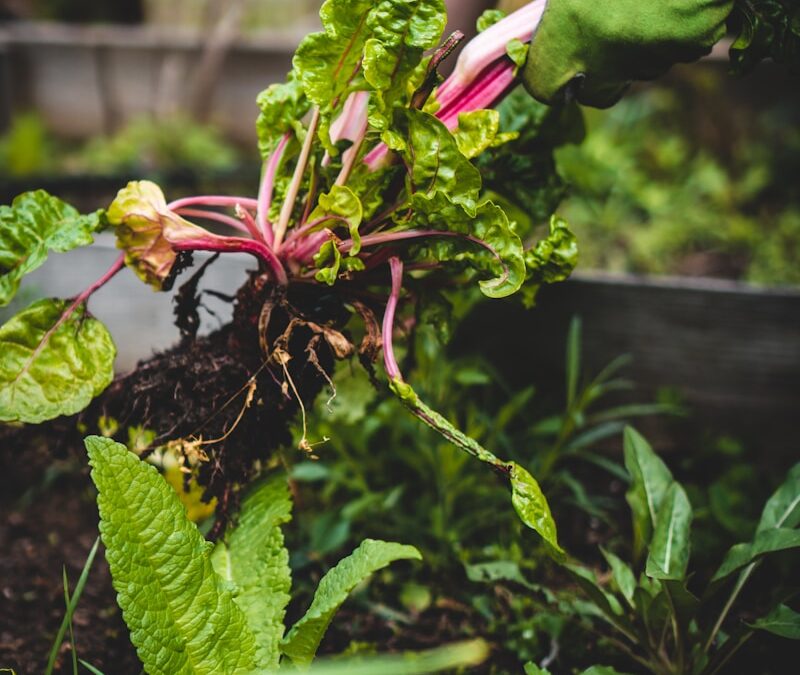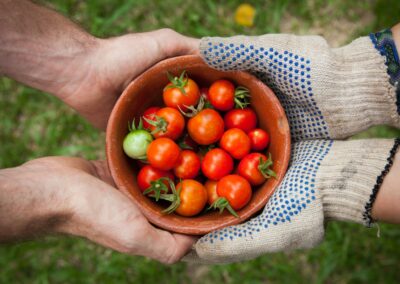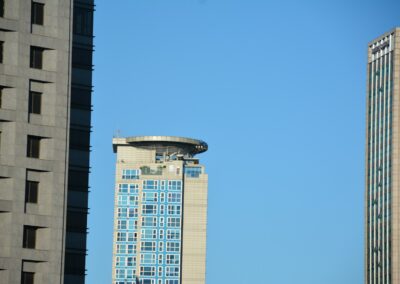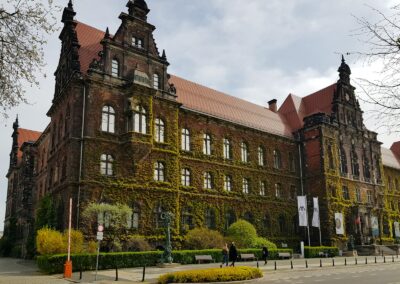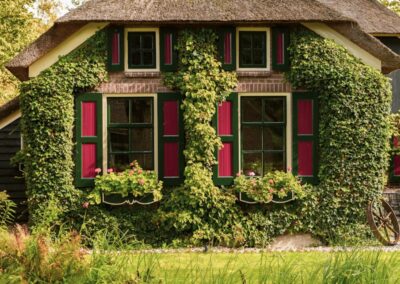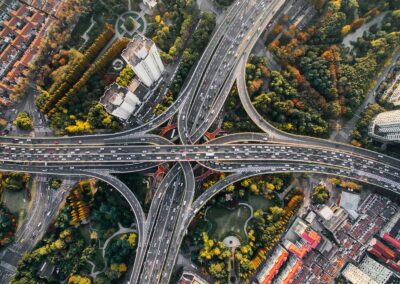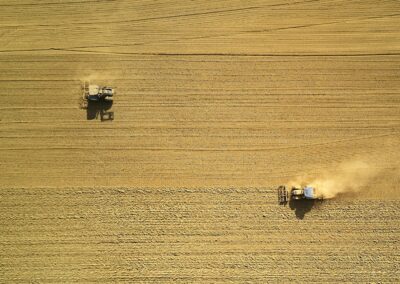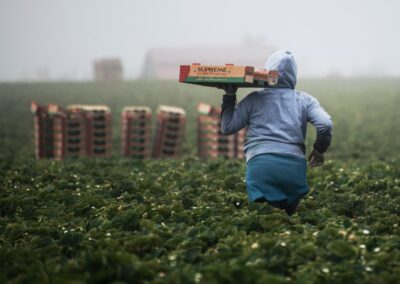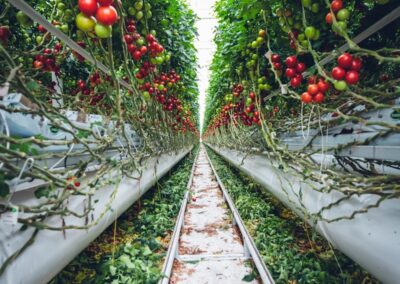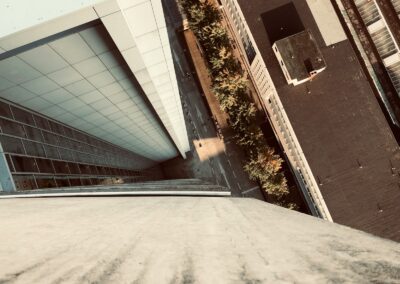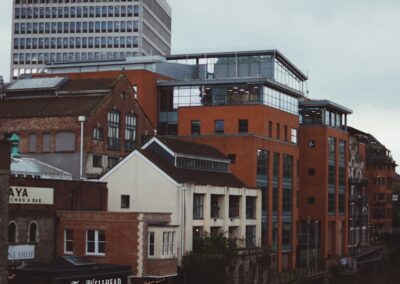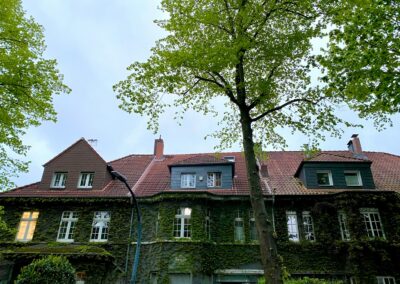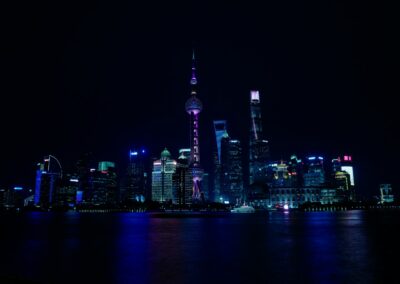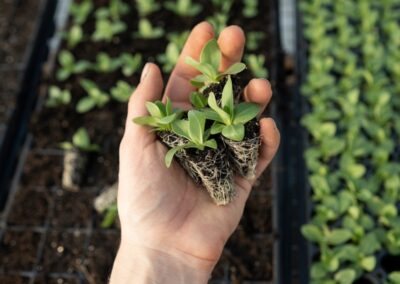Transforming Urban Food Production with Vertical Farming
Introduction to Vertical Farming in Skyscraper Cities
The concept of vertical farming in skyscraper cities is revolutionizing urban food production by providing sustainable solutions to meet the growing demand for fresh produce in densely populated areas. In progressive regions like Saudi Arabia and the UAE, cities such as Riyadh and Dubai are leading the charge in integrating vertical farming into their urban landscapes. By utilizing vertical space within skyscrapers, these cities are addressing the challenges of limited land availability and promoting food security in an environmentally friendly manner.
Vertical farming involves cultivating crops in stacked layers within controlled environments, allowing for efficient use of space and resources. This innovative approach not only maximizes yield but also reduces the environmental impact associated with traditional farming methods. In Riyadh and Dubai, vertical farms are being incorporated into high-rise buildings, creating urban farms that supply fresh, locally grown produce to residents.
For business executives and entrepreneurs, the adoption of vertical farming represents a significant opportunity for innovation and growth. The ability to produce food locally within urban centers can reduce transportation costs, lower carbon emissions, and provide a steady supply of fresh produce. Leaders in Saudi Arabia and the UAE must leverage modern technology and strategic planning to ensure the successful implementation of vertical farming, contributing to the overall sustainability and resilience of their cities.
Technological Advancements in Vertical Farming
The success of vertical farming in skyscraper cities is heavily dependent on technological advancements that enhance efficiency, productivity, and sustainability. In regions like Saudi Arabia and the UAE, cutting-edge technologies are being integrated into vertical farming systems to optimize growth conditions, monitor crop health, and streamline operations.
In Riyadh, for example, artificial intelligence (AI) is being used to monitor and manage vertical farms. AI-powered systems can analyze data from sensors to adjust lighting, temperature, humidity, and nutrient levels in real-time, ensuring optimal growing conditions for each crop. Additionally, AI can predict and address potential issues before they become significant problems, enhancing the overall efficiency of vertical farming operations.
In Dubai, blockchain technology is being implemented to ensure transparency and traceability in the food supply chain. By using blockchain, vertical farms can provide detailed information about the origin, quality, and journey of their produce, building trust with consumers and ensuring food safety. Furthermore, the integration of the metaverse allows for virtual tours of vertical farms, providing educational and engagement opportunities for the public. These technological advancements are setting new standards for urban agriculture, demonstrating how innovation can drive sustainability in skyscraper cities.
Benefits and Challenges of Vertical Farming in Urban Environments
Environmental and Economic Benefits
Vertical farming in skyscraper cities offers numerous environmental and economic benefits. In Saudi Arabia and the UAE, where arable land is limited and water resources are scarce, vertical farming presents a sustainable solution to food production. By growing crops in controlled environments, vertical farms can significantly reduce water usage through efficient irrigation systems and recycling technologies. Additionally, vertical farming eliminates the need for pesticides and herbicides, promoting healthier and safer food production.
Economically, vertical farming can boost local economies by creating jobs and stimulating investment in urban agriculture. In Riyadh and Dubai, the establishment of vertical farms within skyscrapers can reduce the reliance on imported produce, enhancing food security and supporting local businesses. Furthermore, the proximity of vertical farms to urban consumers reduces transportation costs and associated carbon emissions, contributing to the overall sustainability of urban food systems.
For business leaders, the integration of vertical farming into urban environments offers a unique opportunity to promote sustainability and innovation. By investing in vertical farming technologies and practices, businesses can align with global sustainability goals, enhance their corporate social responsibility initiatives, and capitalize on the growing demand for locally produced, sustainable food. Leaders in Saudi Arabia and the UAE must champion the adoption of vertical farming to drive economic growth and environmental stewardship in their cities.
Challenges and Solutions in Vertical Farming
Despite the numerous benefits, vertical farming in skyscraper cities also presents several challenges that need to be addressed to ensure its success. These challenges include high initial investment costs, energy consumption, and the technical complexity of managing controlled environments. However, innovative solutions and strategic planning can overcome these obstacles, making vertical farming a viable and sustainable option for urban food production.
In Riyadh and Dubai, high initial investment costs can be mitigated through public-private partnerships and government incentives. By collaborating with private sector companies and offering financial support, governments can encourage the development of vertical farms and reduce the financial burden on businesses. Additionally, advancements in renewable energy technologies, such as solar panels and wind turbines, can help offset the energy consumption of vertical farms, making them more sustainable and cost-effective.
The technical complexity of managing vertical farms can be addressed through education and training programs. In regions like Saudi Arabia and the UAE, universities and research institutions are offering specialized courses and workshops on vertical farming, equipping professionals with the knowledge and skills needed to manage and operate these systems effectively. By investing in human capital and fostering a culture of innovation, cities can ensure the successful implementation and operation of vertical farms.
The Future of Vertical Farming in Skyscraper Cities
The future of vertical farming in skyscraper cities looks promising, with continued advancements in technology and increased awareness of sustainable food production practices. In regions like Saudi Arabia and the UAE, the integration of vertical farming into urban planning and development is set to transform the way cities produce and consume food. By embracing this innovative approach, cities can enhance food security, promote environmental sustainability, and improve the quality of life for their residents.
In Riyadh and Dubai, the future of vertical farming will be shaped by ongoing research, technological innovation, and strategic investment. As cities continue to grow and urban populations increase, the demand for sustainable food production solutions will only intensify. By prioritizing vertical farming and supporting its development, leaders can ensure that their cities are resilient, sustainable, and capable of meeting the challenges of the future.
For business executives and entrepreneurs, the future of vertical farming presents exciting opportunities for growth and innovation. By staying informed about the latest advancements in vertical farming technologies and practices, businesses can position themselves at the forefront of this emerging industry. Leaders in Saudi Arabia and the UAE must embrace the potential of vertical farming, driving sustainable development and creating a brighter future for their cities.
Conclusion
Vertical farming in skyscraper cities offers a sustainable solution to the urban food production crisis. In regions like Saudi Arabia and the UAE, innovative architectural solutions and modern technologies are being harnessed to create efficient and sustainable vertical farms. By integrating AI, blockchain, and the metaverse into urban agriculture, these cities are setting new standards for the future of food production. Business leaders and entrepreneurs must prioritize strategic planning, technological innovation, and sustainability to ensure the successful implementation of vertical farming, driving economic growth and enhancing the quality of life for urban residents.
—
#VerticalFarming #SkyscraperCities #SustainableUrbanFoodProduction #TechnologicalAdvancements #AI #Blockchain #TheMetaverse #GenerativeAI #ModernTechnology #SaudiArabia #UAE #Riyadh #Dubai #BusinessSuccess #Leadership #ManagementSkills #ProjectManagement

